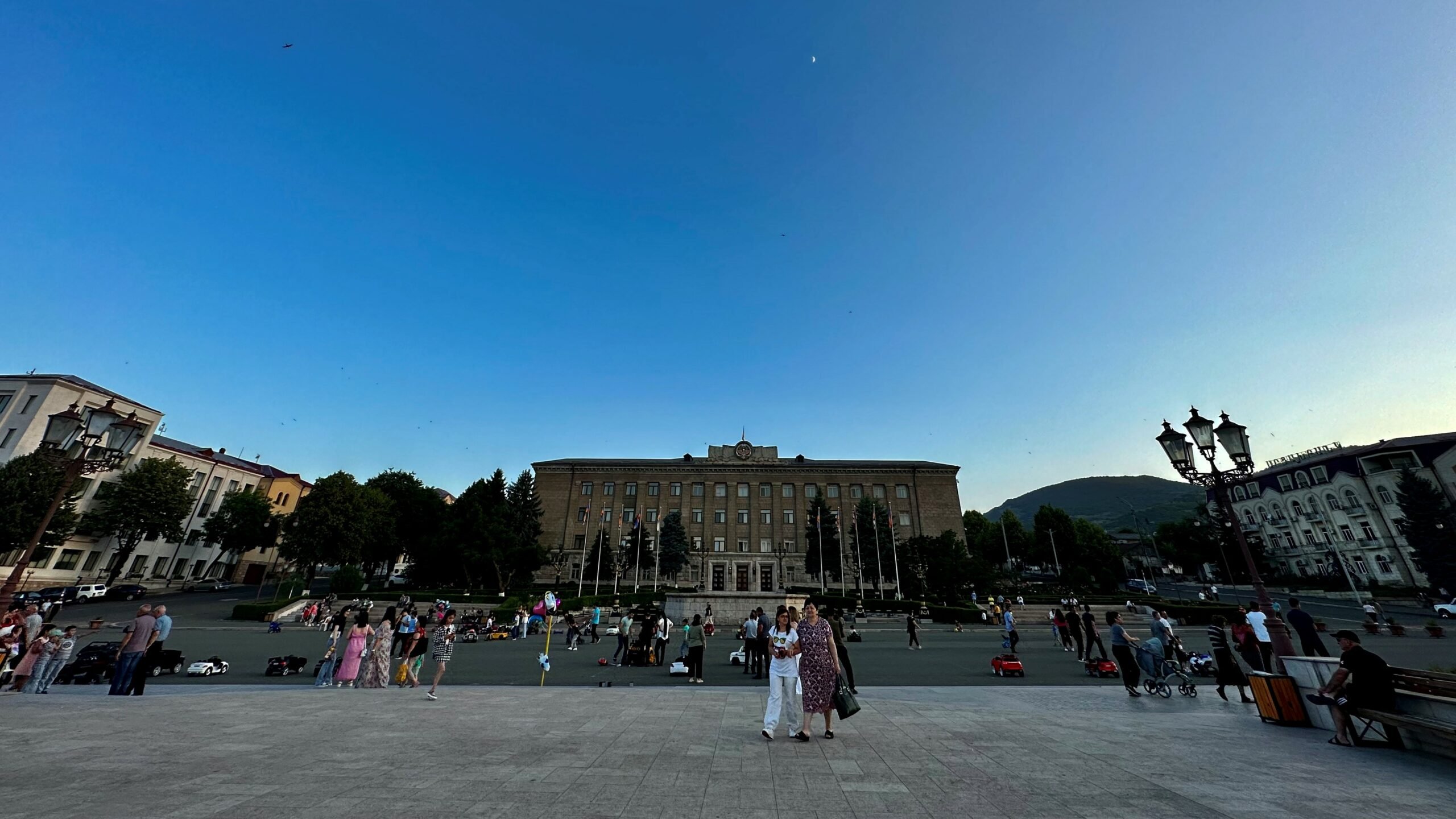
Beyond the concrete barrier, 120,000 Artsakh citizens are deprived of any humanitarian aid. Artsakh has been under blockade for over half a year. Gas is a memory of the long-forgotten past, electricity supply from Armenia to Artsakh is disrupted. Planned operations are not performed; only emergency medical care is provided to citizens. Deprivation of basic necessities, certain foods, and medicines is becoming critical.
Azerbaijan has cut off and isolated Artsakh from the whole world. Because of the blockade, neither Armenian nor international journalists can go to Artsakh and cover the situation.
Under these conditions, local journalists work for both internal and external audiences. In a conversation with Media.am, our colleagues told what problems they encountered under the blockade and what solutions they found.
Hayk Ghazaryan
He graduated from Artsakh State University, Department of Journalism. 2011-2012 studied at the political and social journalism department of the Caucasus Institute. Since 2013, is the publishing editor of Analiticon Journal (Press Club of Stepanakert). In 2018-2020, he reported for Hetk; since 2021, he has been part of the Artsakh team of CivilNet.
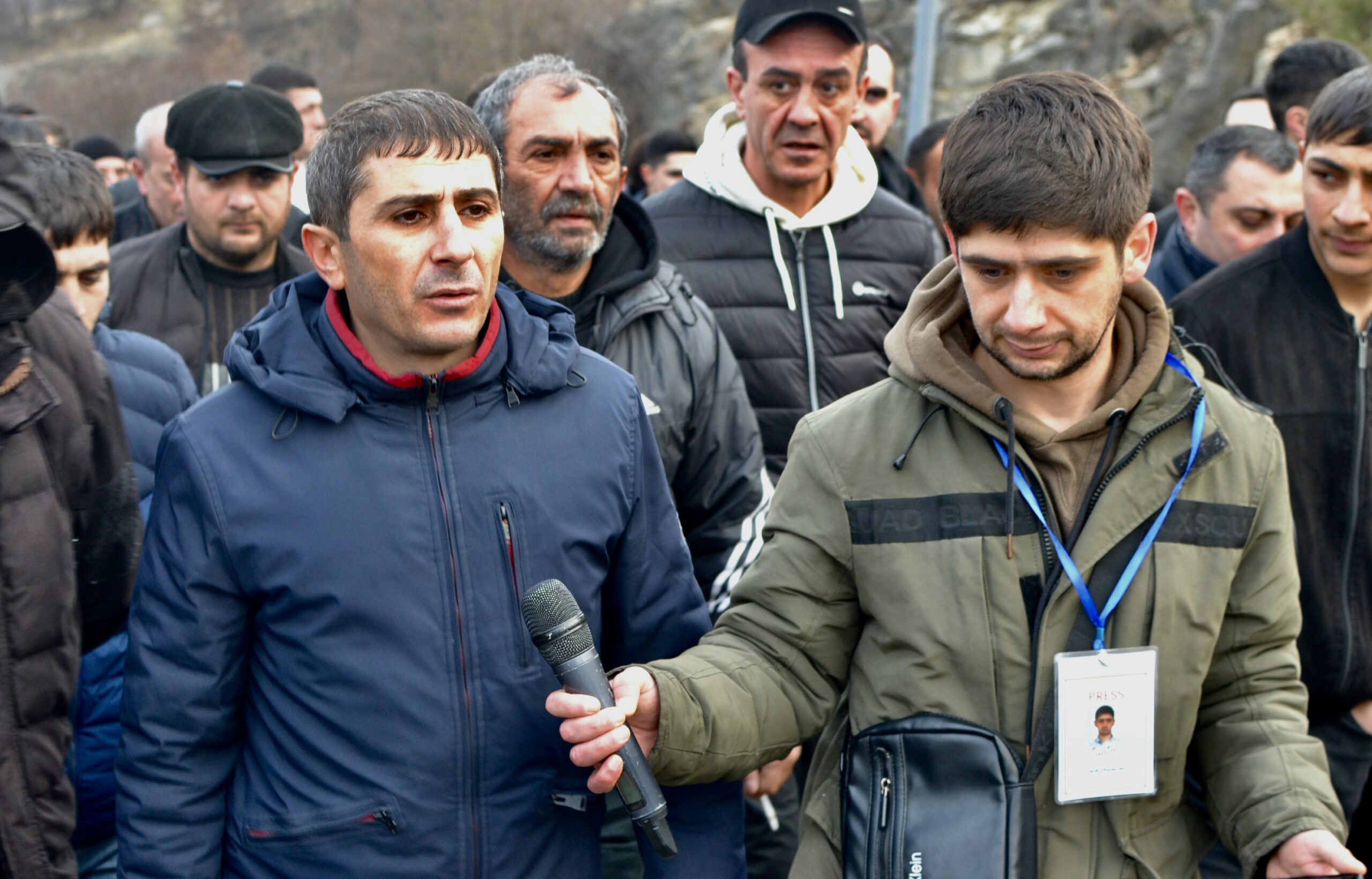
Hayk Ghazaryan. Photo by Marut Vanyan
The blockade has made it difficult for journalists. There are various difficulties: from technical problems to substantive and psychological ones. For example, for a journalist today, going from place to place and reaching the scene of the incident is a major issue because there is no fuel; sometimes, we have to reach our destination on foot.
There was a time during the blockade when we got fuel with coupons, I got it once, but now only public transport is provided with fuel. Although, today we were told that sometimes we could film with the public TV because they are allotted fuel.
Connectivity issues are sometimes added to the problem of commuting, and often to check the information at hand, you have to walk to the incident site to verify it from the primary sources.
For example, in the case of the diversion against the police, I climbed to the closest possible height of the incident site close to the control zone of the NSS and tried to determine what was happening on the spot.
Attaining information has also become problematic. In contrast to the first days of the blockade, now both the officials and the spokespersons of government departments are less eager to give interviews; they need to figure out what to say; they don’t possess any particular information to come and tell the journalists.
The same problem is present with doctors. At the beginning of the blockade, they actively cooperated with us. Now, more often than before, they refuse to give interviews. They say that no matter what they say, nothing will change. And generally, there is an information vacuum.
During martial law, various strictures and decisions were made, according to which we should stay within the official information.
However, even within the strictures imposed, there is quite a bit of freedom in Artsakh; at least, I have not encountered any serious problems of someone oppressing me. It is out of the question; nothing of the kind has happened so far.
Before the war and the blockade, I used to write about corruption and abuses, but now they are irrelevant. All journalistic principles fall aside when your home is being shelled. Everything changes dramatically when you know that your home is at risk.
The reality is different from what you are taught in journalism theories. You become part of the conflict. When your family lives in the same place, your relatives and children, you experience the events around you differently. And no matter how much you want to maintain your professional neutrality, it becomes impossible. The picture would be different if I covered, for example, the war in Ukraine.
Siranush Adamyan
She graduated from Artsakh State University, Department of Journalism, and participated in informal media literacy and multimedia journalism courses. Since 2022, Siranush has been working in the Artsakh office of Civilnet.
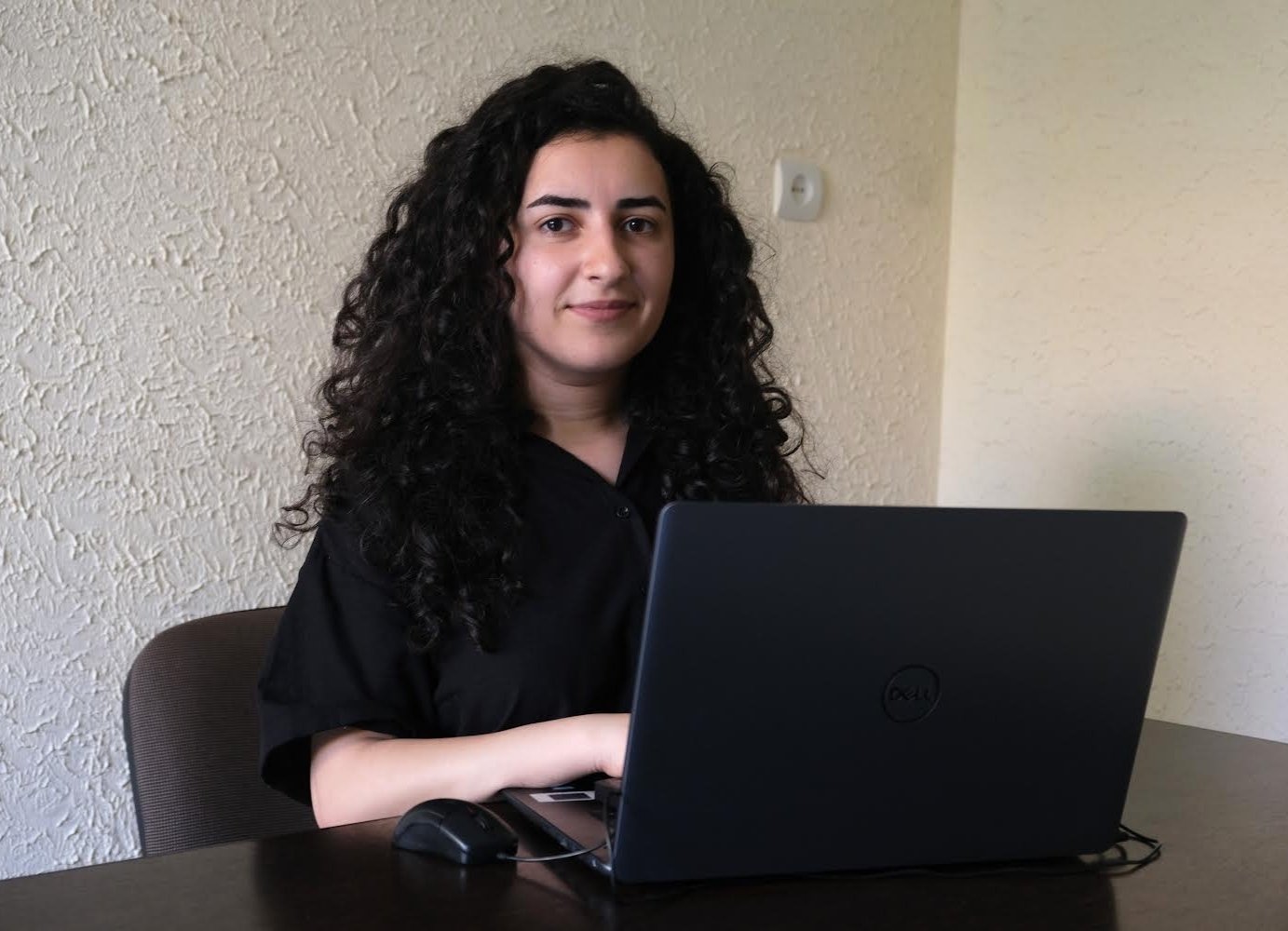
Siranush Adamyan
I did not work before the war. While studying, I used to write human stories. After the war, we started writing more about the displaced people, the problems they encounter, and what they do.
Now the topic is one: the blockade. Everything is about the blockade. We cover topics that concern and interest the people of Artsakh: healthcare and transport problems.
In terms of topics, we sometimes encounter problems acquiring information or data. After the blockade, getting information has become challenging; some restrictions exist. But it will not be accurate if I say that we face serious problems or there is no information.
For example, suppose we want to prepare a material on the economic situation, and we ask for information from the Ministry of Economy. In that case, they refuse to answer questions saying they are forbidden to talk about that topic. Or recently, I wanted to prepare material on birth rate, i.e., how many children were born after the war or during the blockade? The Ministry of Health informed us there is a new decision not to discuss the birth rate or publish data on this topic.
In addition to the birth rate, population information is also not disclosed. For example, if we go to a village, the head of the community does not tell us how many people live in their village, saying he was told not to disclose any numbers. Of course, this makes work difficult, but since there is a decision, we all aim to follow those decisions. We try to follow the official information and organize our work accordingly.
Working in Artsakh under blockade, it means a lot to me that our Yerevan colleagues of Civilnet translate the materials we prepare into Russian and English. At least this way, the information also becomes available to foreign readers.
In addition, we disseminate it through social media: Twitter and YouTube. We aim to make what is happening here more accessible to the foreign audience, at least through these means.
The coverage of the blockade in the international press is essential. The materials we provide, i.e., photos, articles, etc., must correctly reflect the general picture of what is happening in Artsakh. I believe, today, the journalists of Artsakh have a great responsibility.
Marut Vanyan
He is a freelance journalist. He has been engaged in journalism since 2015 and has participated in various informal journalism courses. By his definition, the blockade became the reason for him to engage in active journalism and use Twitter in his work.
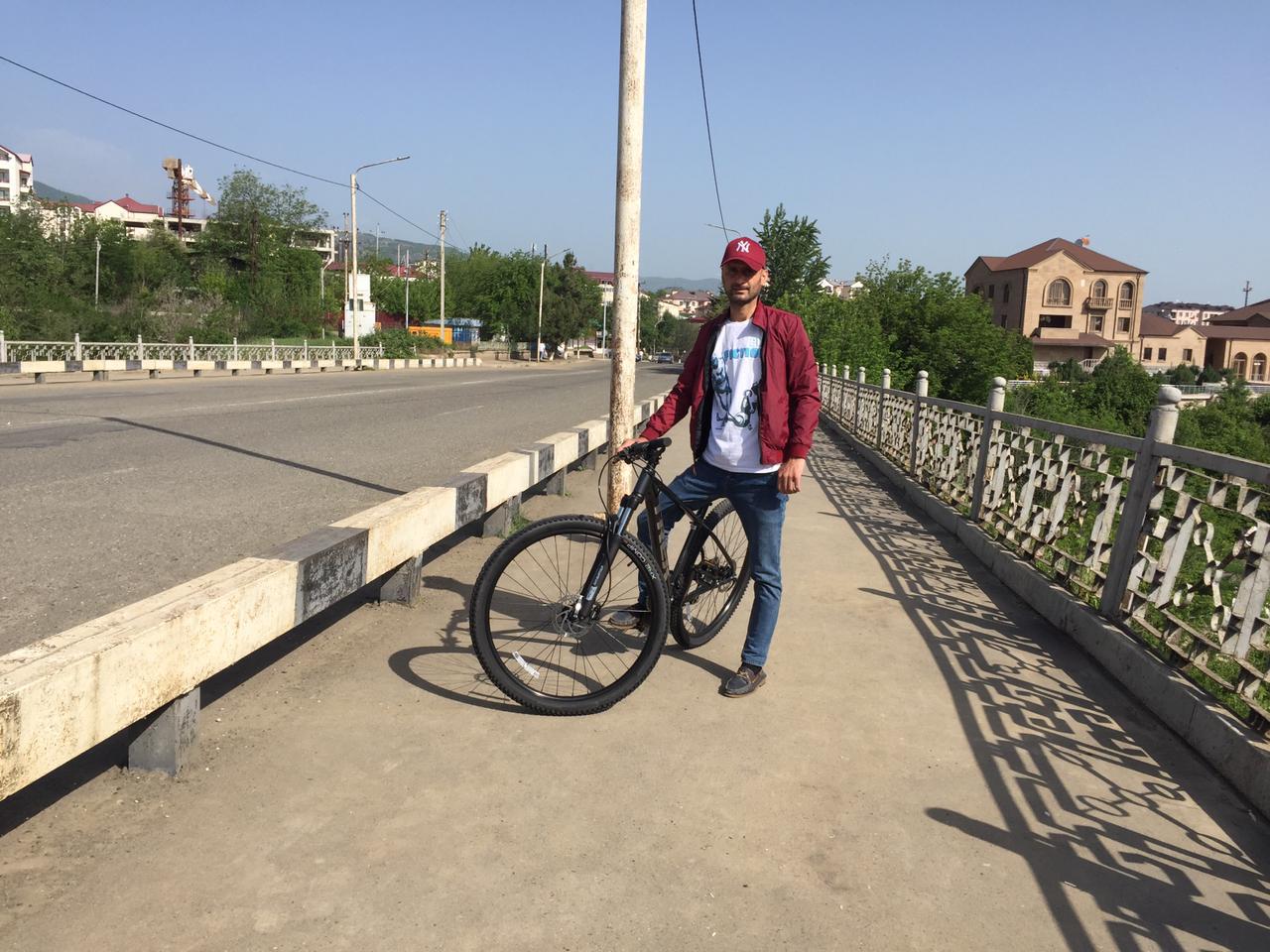
Marut Vanyan
The blockade has affected everything; everything has become limited, including freedom of speech. I will not say that Artsakh has turned into North Korea, but in any case, the information is also under blockade. Unlike Armenia, I would lie if I told press freedom existed before the blockade. Here we have public television and state newspapers; it is not as if we had an independent press, which is now restricted.
The fact that neither international nor Armenian media have the opportunity to work in Artsakh today creates a vacuum effect. An outsider sees much more and raises many logical questions. In addition, it is psychologically strenuous to write about a topic that touches you directly.
I prioritize my work with the international press so that the largest possible audience is informed about what is happening in Artsakh. During the blockade, I began to love Twitter. It is the most efficient way to tell the world about Artsakh events. On Twitter, I aim to make my tweets as accessible and understandable as possible to foreign users.
Many international media have contacted me, including the BBC and Al-Jazeera English. I have done my best to comment on and write articles for them on the most critical topics.
Even when there is interest from international media, there needs to be an adequate response from our side. Even remotely, not enough work is being done with the international mass media outlets. Funny, we often complain that Europe is silent and does not listen, they only make statements, but at the same time, we do not provide the necessary information they ask for.
People have also changed, and working with them has become challenging.
To illustrate, I had to write an article for a European newspaper about the social problems caused by the blockade: queues, lack of goods. I was forbidden to take pictures of empty shops, not to mention the queues. Naturally, I would not depict faces, but even then, people objected.
Once, I went to take pictures of a cold and empty classroom due to the gas supply cut off, and the principal forbade taking photos without explanation.
People have become very suspicious. There have been cases when I was shooting in the city, and people approached and asked who I was and what I was doing. There was even a case when a citizen asked to see my passport.
There are many difficulties. At least I don’t have commuting problems like other journalists. I ride a bicycle; my work doesn’t suffer due to fuel shortage. I can go to different places, take pictures, do interviews.
Bureaucracy in governmental departments is another issue hindering a journalist’s work. For example, you want to go to the hospital, record emotions, talk to the parents of the children in the hospital, and talk to the doctor. For every such interview, you need permission from the ministry. They say that any information provided should be verified with the information center. One needs to go through the tiresome process of getting all the permits.
The most touching stories happen in hospitals. When the food and medicine ran out at the beginning of the blockade, I talked to the mother of one of the children being treated in the hospital. Crying, she told how she gave the child’s medicines half by half, divided the last potato in the house into four parts, and prepared one for the child every day because it was her favorite dish; it was heartbreaking.
On the other hand, you should cover the reality so there is no panic. The already aggravated, tense situation should not be worsened. I work very carefully in this regard but always try to present the truth. I never exaggerate. For example, if there were no bananas for months, I said there were no bananas. But I wrote when they were imported. There was no medication; I said there was none. Then, when the Red Cross brought medicine, that’s what I wrote. Truth is above all.
Marianna Danielyan
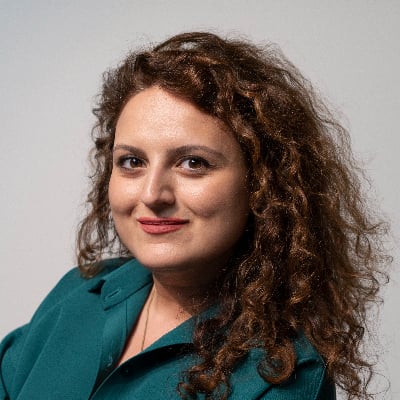

Add new comment
Comments by Media.am readers become public after moderation. We urge our readers not to leave anonymous comments. It’s always nice to know with whom one is speaking.
We do not publish comments that contain profanities, non-normative lexicon, personal attacks or threats. We do not publish comments that spread hate.